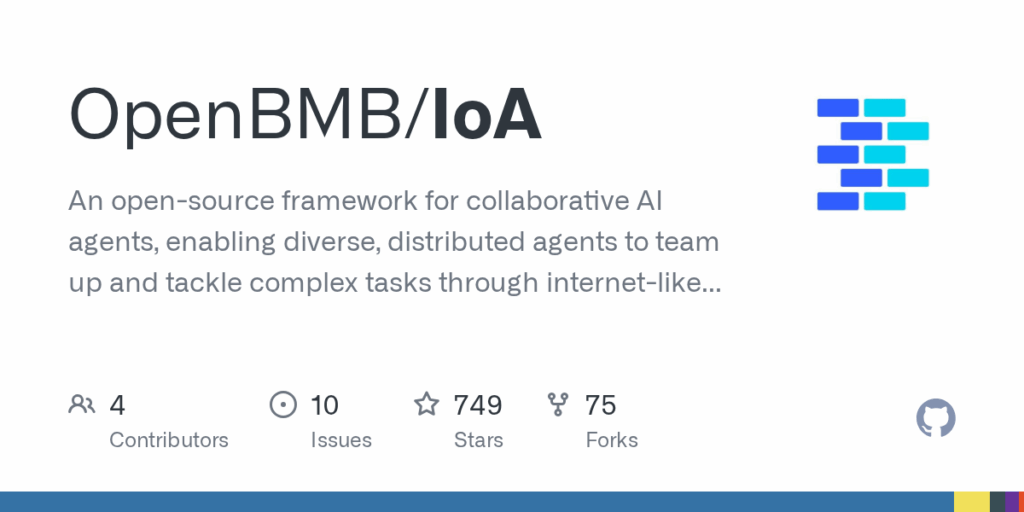IoA
Basic Information
Internet of Agents (IoA) is an open-source framework designed to let multiple AI agents collaborate and form autonomous teams to solve complex tasks. It provides an architecture inspired by the internet for connecting heterogeneous agents across environments, tooling to run server, client and frontend components, and examples that integrate agents such as AutoGPT, Open Interpreter and ReAct. The repository includes Dockerfiles and pre-built images, compose files to launch core services and a Milvus vector service for retrieval, scripts to test on an open instruction dataset, and a simple HTTP endpoint to launch goals. The project is accompanied by documentation and a research paper that explain the layered architecture and design goals. The codebase and deployment instructions target developers and researchers who want to build, run or study distributed multi-agent collaboration systems.








